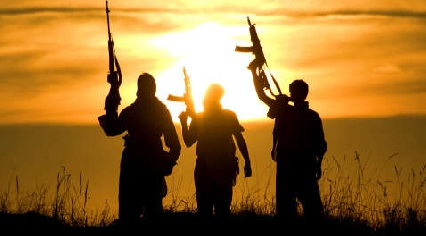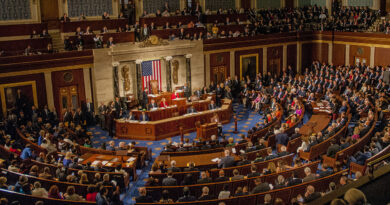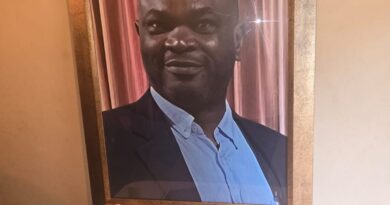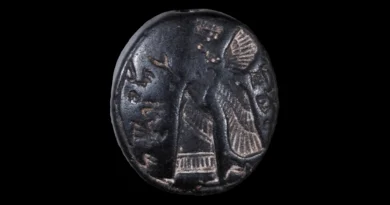Christian Genocide Debate Deepens as PFN, Islamic Council Clash Over Claims
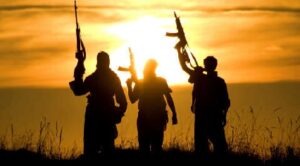 Christian Genocide Debate Deepens as PFN, Islamic Council Clash Over Claims
Christian Genocide Debate Deepens as PFN, Islamic Council Clash Over Claims
The controversy surrounding claims of Christian genocide in Nigeria has reignited tensions between major religious bodies. The Nigerian Supreme Council for Islamic Affairs (NSCIA) dismissed the allegations on Sunday, calling them false, divisive, and politically driven. But the Pentecostal Fellowship of Nigeria (PFN) insists that the killings of Christians across the country amount to genocide and should be called by their real name.
At a press briefing in Abuja, the NSCIA Secretary-General, Professor Is-haq Oloyede, accused sections of the Western media and foreign political figures of promoting a distorted narrative. He said such claims were part of a broader plan to destabilise Nigeria and misrepresent its complex security challenges.
According to Oloyede, the ongoing violence in different regions is not religious but rooted in crime, poverty, bad governance, and climate-induced migration. He said criminals, not faiths, were behind the bloodshed. “There is no Christian terrorism, no Muslim terrorism, and no religious war in Nigeria,” he stated. “What we face is a national tragedy driven by poverty and corruption. Yet, some forces outside the country exploit the situation for political gain.”
ALSO READ : Rector Highlights Role of Youth in the Fight Against Malaria
He alleged that some Nigerian separatist groups and foreign lobbyists were spreading fabricated stories and manipulated videos to influence Western governments. He described the United States’ renewed designation of Nigeria as a “Country of Particular Concern” as a political decision, not one based on facts.
Oloyede urged President Donald Trump and the U.S. government to assist Nigeria with intelligence and logistics rather than engaging in what he called “smear campaigns.”
But PFN President, Bishop Wale Oke, disagreed. During his visit to the Olubadan of Ibadan, Oba Rashidi Ladoja, over the weekend, he maintained that Christians were under siege in Nigeria. “There is Christian genocide in this country,” he said. “No Christian group is attacking Muslims. The patience of the church is being stretched.”
ALSO READ :Drama as a Tool for Evangelism
He listed several attacks attributed to extremist groups, citing the killing of Deborah Samuel, the abduction of Leah Sharibu and the Chibok girls, as well as repeated assaults in Benue, Southern Kaduna, and Owo. He said hundreds of pastors and believers had been murdered while churches were burnt down.
Bishop Oke praised Trump for speaking out on the killings but advised against military intervention. Instead, he called on President Bola Tinubu to cooperate with the U.S. to dismantle terrorist groups such as Boko Haram and ISWAP. “The government should not play politics with it,” he said. “This cancer must be rooted out.”
Oba Ladoja, through his media aide, Adeola Oloko, also lamented the loss of lives and properties over the years. The monarch said many families had been displaced and countless resources wasted in fighting insecurity. He appealed for peace and urged the church to remain calm, stressing that terrorists do not differentiate between Muslims and Christians. “They see everyone as prey,” he said. “We must unite to overcome this evil.”
ALSO READ : A Growing Global Health Threat: Chronic Kidney Disease
Meanwhile, All Progressives Congress (APC) chieftain in Osun State, Olatunbosun Oyintiloye, cautioned against accepting foreign troops into Nigeria. In a statement issued in Osogbo, he warned that external intervention could worsen the country’s fragile situation. He urged Nigerians to rally behind President Tinubu and the security agencies to end terrorism.
“This is not a time for political or religious division,” he said. “We must protect the existence of Nigeria above personal interests. Foreign support in terms of intelligence and equipment is welcome, but not boots on our soil.”
Oyintiloye stressed that terrorism had affected both Muslims and Christians, insisting that no single religion had been singled out for attack. He also called on newly appointed service chiefs to justify the confidence placed in them and deliver results.
The growing war of words between religious leaders reflects Nigeria’s long struggle with faith-based tensions and insecurity. As the debate continues, one question lingers whether Nigeria’s leaders can bridge the religious divide and restore peace without foreign interference.
Content Credit: Blessing Dada
Image Credit: Google Search.Com

